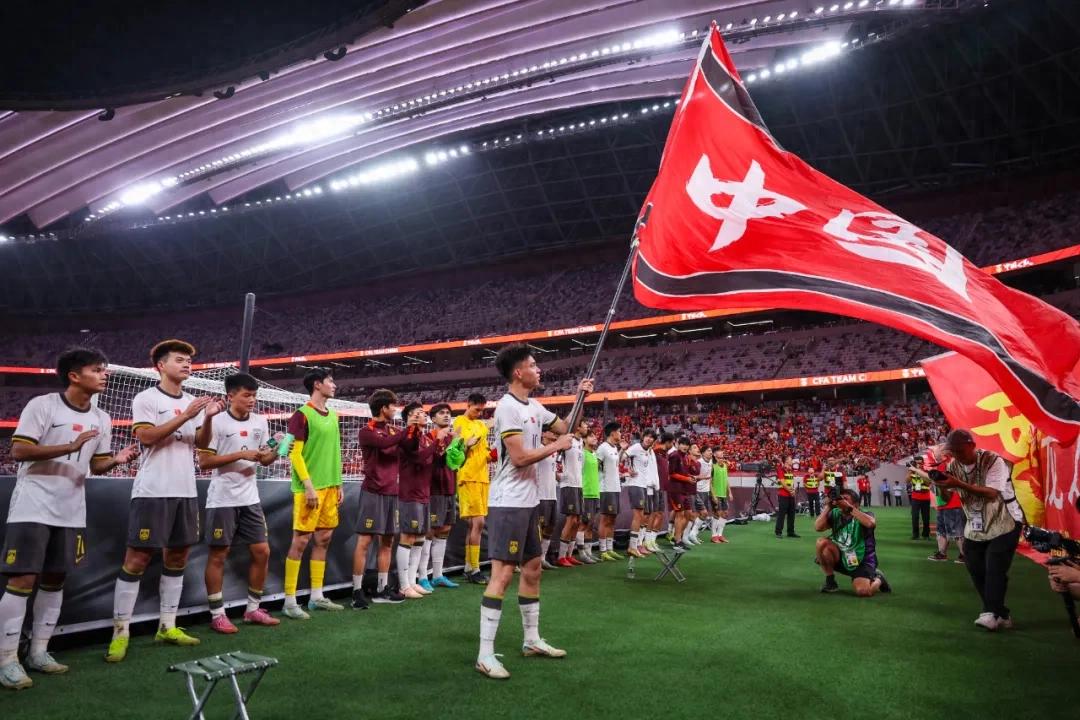
Reporter Chen Yong reports Though the key China-Australia match on September 9 is still ahead, the U22 national team’s recent two games have left many puzzled — a poor performance all game against Timor-Leste, and a sluggish first half against the Northern Mariana Islands, but an explosive second half that appeared to give some hope. The match against Australia on September 9 is a critical test, but before that, a comprehensive analysis or review of this U22 squad is necessary.

Wang Yudong has performed excellently and remains the only “gain” for the U22 team so far. Beyond that, there are many aspects that require reflection and summary: first, the mentality, which is more concerning than the players’ technical skills; second, the absence of a defensive midfielder, a problem that persists across all national teams and remains obvious in the U22 squad.
The lack of technical ability is the first impression the U22 team gives to outsiders. In the first two matches, players made numerous mistakes, but this deficiency in technical skills is partly related to the players’ own abilities and, more importantly, to their mentality.
Before the Timor-Leste match, the reporter observed the U22 team’s shooting practice and immediately noticed the very poor quality of shots. Later, as videos surfaced, it became clear that beyond individual technical flaws, a more significant issue was their carelessness, clearly demonstrated by their body posture during running and shooting.
Another detail from the first half against Timor-Leste is that the U22 team did not maintain continuous pressure, often making pointless passes in their own half, which naturally gave Timor-Leste opportunities to recover. Even more unacceptable was near the end of the first half when the team failed to press forward and instead passed backward, wasting a chance to attack.
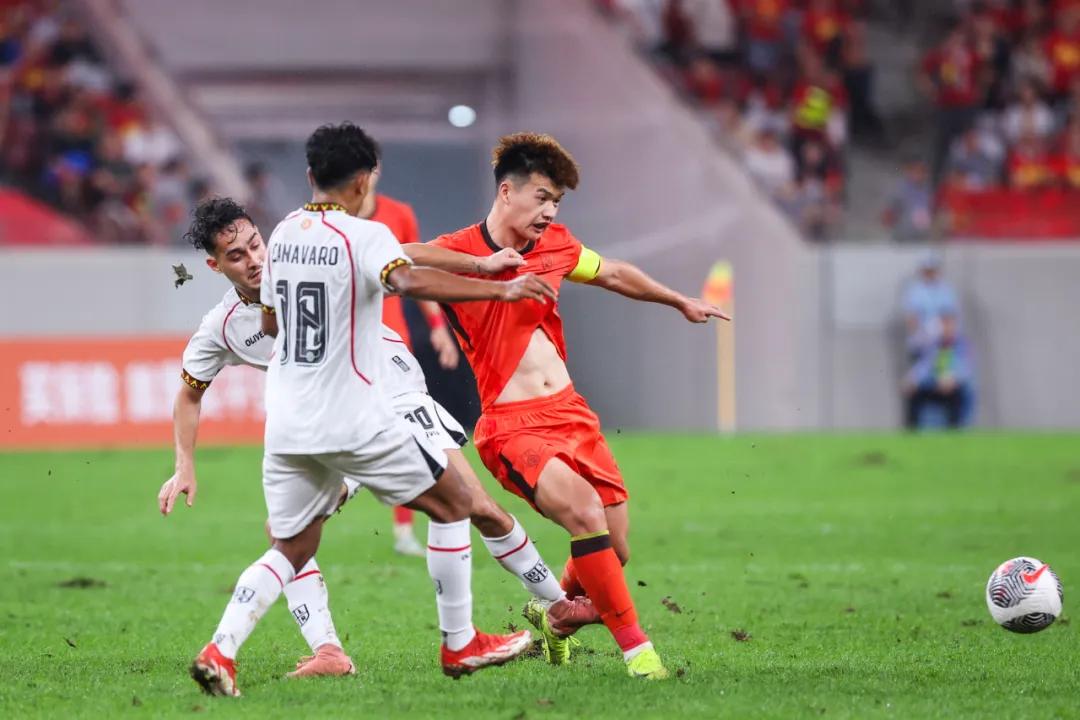
Additionally, in the second half against Timor-Leste, the national team’s defense made many errors. For example, after a midfield pass back to the defender, the defender did not release the ball immediately but waited until the opposing forward pressed, leading to some dangerous situations. This risky approach is difficult to understand.
These details reveal one point: the U22 players did not take this match seriously nor put in their full effort, exposing arrogance, underestimation of the opponent, and carelessness. After failing to score for a long time, this mentality turned into impatience, mainly shown by excessive dribbling that led to losing possession and hurried attempts to score that distorted their actions. Especially after Timor-Leste scored a goal back, the team became very nervous.
The first half against the Northern Mariana Islands was actually an extension of this anxious mood. These players, who performed well in the league, showed stiff and even distorted movements during the match, particularly lacking composure in the final attack. In the entire first half, the national team had 21 shots with 7 on target but scored only once, whereas in the second half, they took 44 shots with 19 on target and scored 9 goals, showing a completely opposite performance.
When Wang Yudong entered the game, besides providing direct assists and goals, he also helped the whole team regain composure mentally. The most typical example was in the 73rd minute when the U22 team scored their sixth goal after a brilliant one-two pass between Kuai Jiwen and Xiang Yuwang, who successfully finished the move. Previously, Kuai Jiwen had been repeatedly dispossessed after attempts to break through, and Xiang Yuwang had missed several excellent chances.
One extended thought is: although the 2003 youth team played simply and directly, their overall team spirit was very strong. Why have these players, who gradually became league regulars and even joined the senior national team, shown a decline in spirit? Regarding this issue, the psychological fluctuations young players experience transitioning from youth to professional levels deserve attention. Besides arrogance and underestimation, a lack of competitive desire and ambition is actually a widespread phenomenon.
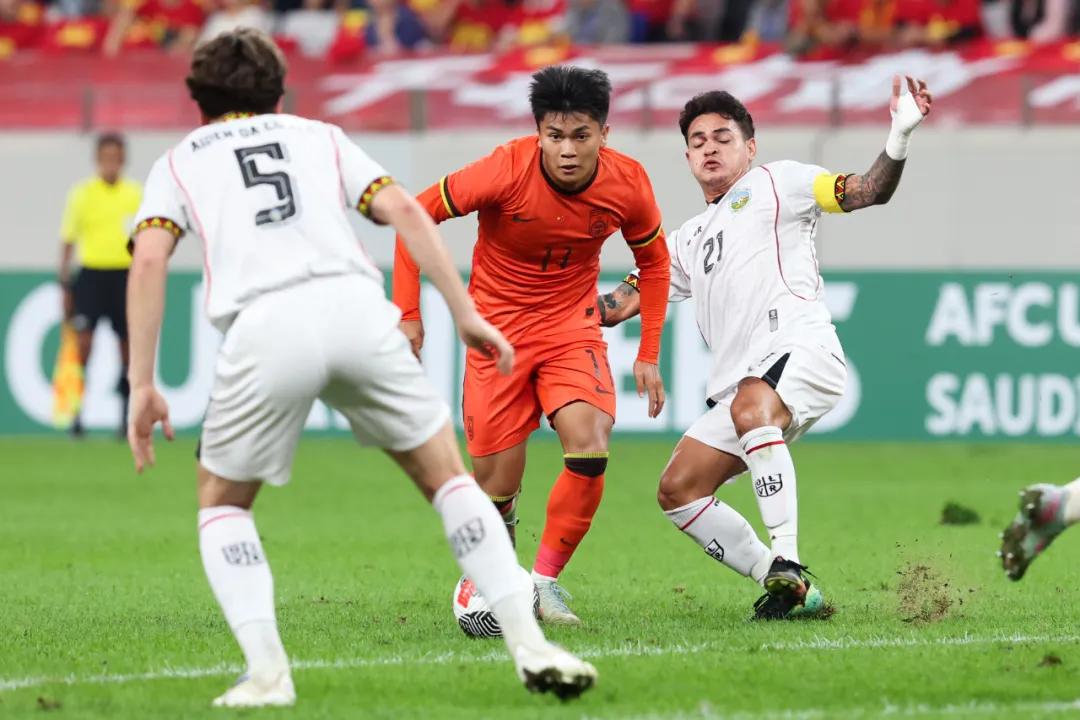

Besides mentality, the defensive midfield issue remains severe.
Currently, this U22 team is composed of players from the 2003 and 2005 age groups mixed together. These two groups had completely different tactical styles in their respective U20 Asian Cups: the 2003 youth team played a purely counter-attacking style, humorously called the “703 tactic” by outsiders; the 2005 youth team focused on possession and balanced offense and defense against several strong teams, though they ultimately failed to qualify for the World Youth Championship partly due to bad luck.
The key difference between the two teams was the defensive midfield role: the 2003 youth team completely abandoned midfield control, while the 2005 team highly valued it, with Yi Yulan and Chen Zeshi forming a strong double pivot. However, this U22 team did not include the 2005 youth team’s defensive midfielders. Yi Yulan and Chen Zeshi were sidelined by injuries, Zhang Zhixiong was not selected, and Yang Haoyu, though from the 2005 age group, was not chosen for the 2005 youth team. Actually, the U22 team briefly brought in Yi Yulan in March, but due to the tactical system’s neglect of midfield control, he rarely got the ball and was unable to demonstrate his abilities.
Antonio’s coaching experience includes the 2003 youth team, 2004 junior team, 2003 youth team again, and the 2003 Asian Games team (which is the current U22 national team). Initially, when coaching the 2003 youth team, he used a normal tactical system and also emphasized midfield when coaching the 2004 junior team. But when he returned to coach the 2003 youth team, he completely abandoned midfield control, adopting a low defensive block and long-ball counterattack as the main tactics. This system worked well in the last U20 Asian Cup, allowing the 2003 youth team to advance from the group stage for the first time in 9 years and reach the quarterfinals.
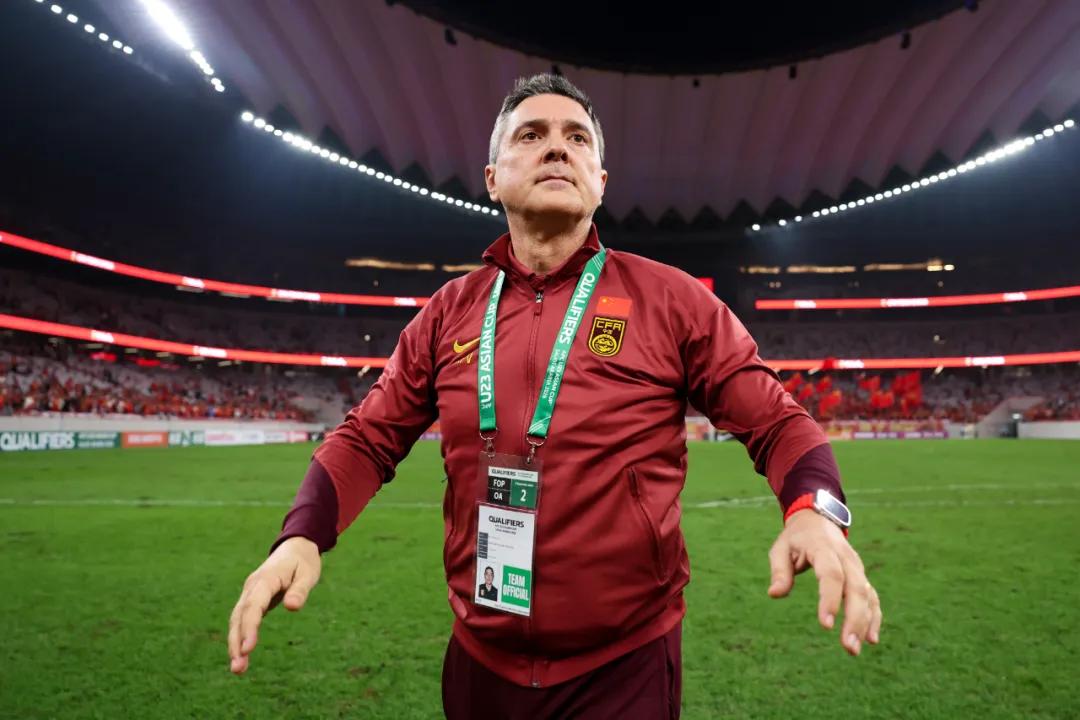
Because he led the 2004 junior team to qualify for the U17 Asian Cup after 6 years and brought the 2003 youth team back to the U20 Asian Cup quarterfinals after 9 years, Antonio became the U22 national team head coach. The reporter noticed during training that Antonio increased midfield organization, but overall still relies on a long-ball counterattack system that does not depend on midfield control. For example, in this U23 Asian Cup qualifiers, the midfielders he chose are still of a more defensive, workmanlike type. Although injuries to Yi Yulan and Chen Zeshi affected his choices, the Salt City Four Nations Tournament showed that even if they were available, Antonio’s tactical system does not rely on midfield organization, so they would likely struggle to play a key role.
Looking ahead to the 2005 Olympic team, considering the 2005 youth team’s performance and Antonio’s tactical style, even though the China-Australia match has not yet occurred, it is generally not advisable for Antonio to take charge of the 2005 Olympic team. The national team’s future style will naturally be counterattack, but for teams beyond the 2005 age group, the national teams should gradually evolve toward a more proactive tactical system, especially since the 2005 youth team and 2008 junior team have already demonstrated quite good tactical abilities in matches.
Regarding player selection, the U22 team’s lineup against Timor-Leste was actually a temporary combination. First, it mixed players from the 2003 and 2005 groups, whose tactical philosophies differ completely. Second, Wang Yudong, Bai Helamu, and Hu Hetao had mostly focused on senior national team matches and lacked cohesion with the rest of the squad. These two factors were the main reasons for the team’s lack of coordination during the game.
Concerning player form, Hu Hetao just returned from a major injury. He started rehabilitation after the June 5 round of 18 and only came back on August 19, appearing as a substitute in the FA Cup semifinal and playing 76 minutes in the 23rd round of the Super League. From his performance, he is far from his best condition. Additionally, Bai Helamu on the right wing is not a technically skilled player, so the U22 team’s right-side attack has significant issues. Wang Shiqin plays mostly as a left center-back in Zhejiang and lacks attacking ability as a left-back, so the team’s wing attacks rely heavily on Wang Yudong. Poor wing attacks, combined with insufficient midfield organization and Xiang Yuwang’s mental problems after missed chances, inevitably trap the team in offensive difficulties.
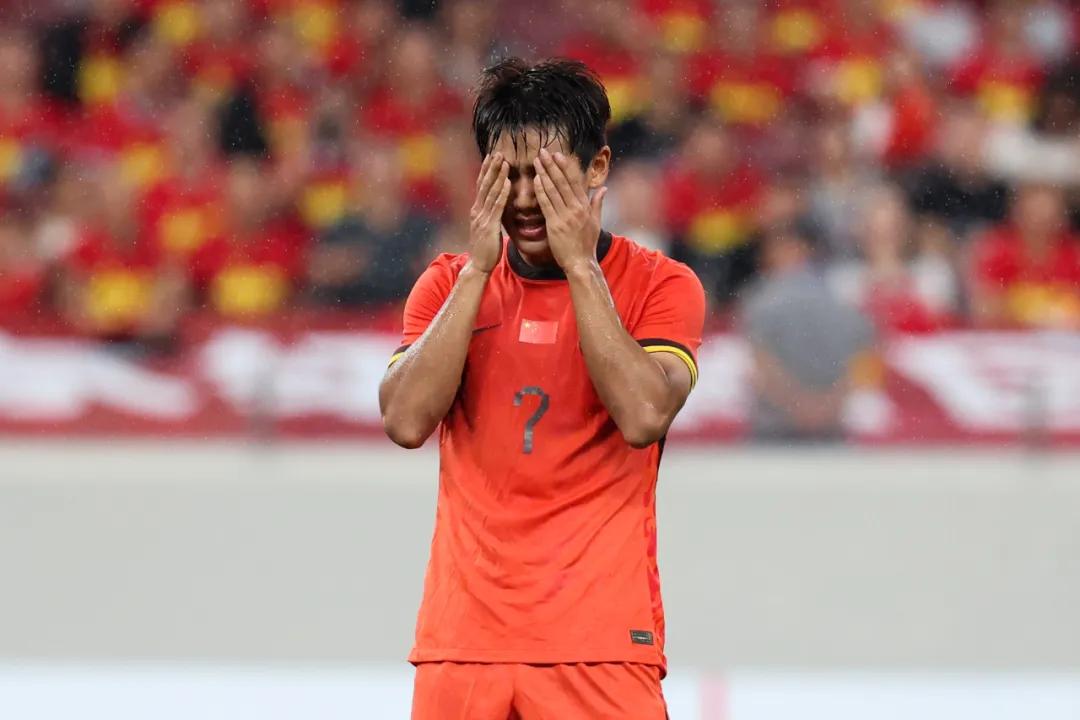

Another point worth summarizing is the U22 team’s preparation. The Salt City Four Nations Tournament in March was very important, featuring strong opponents Uzbekistan, South Korea, and Vietnam, and the U22 team won the championship. The June training camp in Dalian included two matches against Myanmar, followed by a friendly in Belarus, but key players like Wang Yudong, Hu Hetao, Wang Shiqin, and Kuai Jiwen were absent. The July training camp conflicted with the senior national team’s East Asian Cup participation, resulting in an incomplete squad, and the planned friendly against Iraq was canceled, leading to poor preparation. The U22 team was also scheduled to participate in the Weinan Four Nations Tournament, but the event was canceled. Even if it had taken place, the U22 team would have struggled to assemble a full squad.
Since this U23 Asian Cup does not connect to any corresponding world tournament nor serve as an Olympic qualifier, and the league gave way with only two matches adjusted, the lack of systematic preparation has somewhat impacted the team.
In reality, whether the league yields to the national teams or vice versa, it is not an ideal approach. A more reasonable method is effective coordination. Regarding this, we previously recommended setting a league break from late July to early August. Besides avoiding league matches during intense summer heat and allowing teams to adjust for the dual challenges of the league and AFC Champions League starting in September, this break can serve as a crucial preparation window for all levels of national teams. Especially since many AFC important competitions begin in September, allocating this break for national team preparation can greatly ease conflicts between the league and national teams. For other international match dates, national teams can continue maintaining their form through league matches.
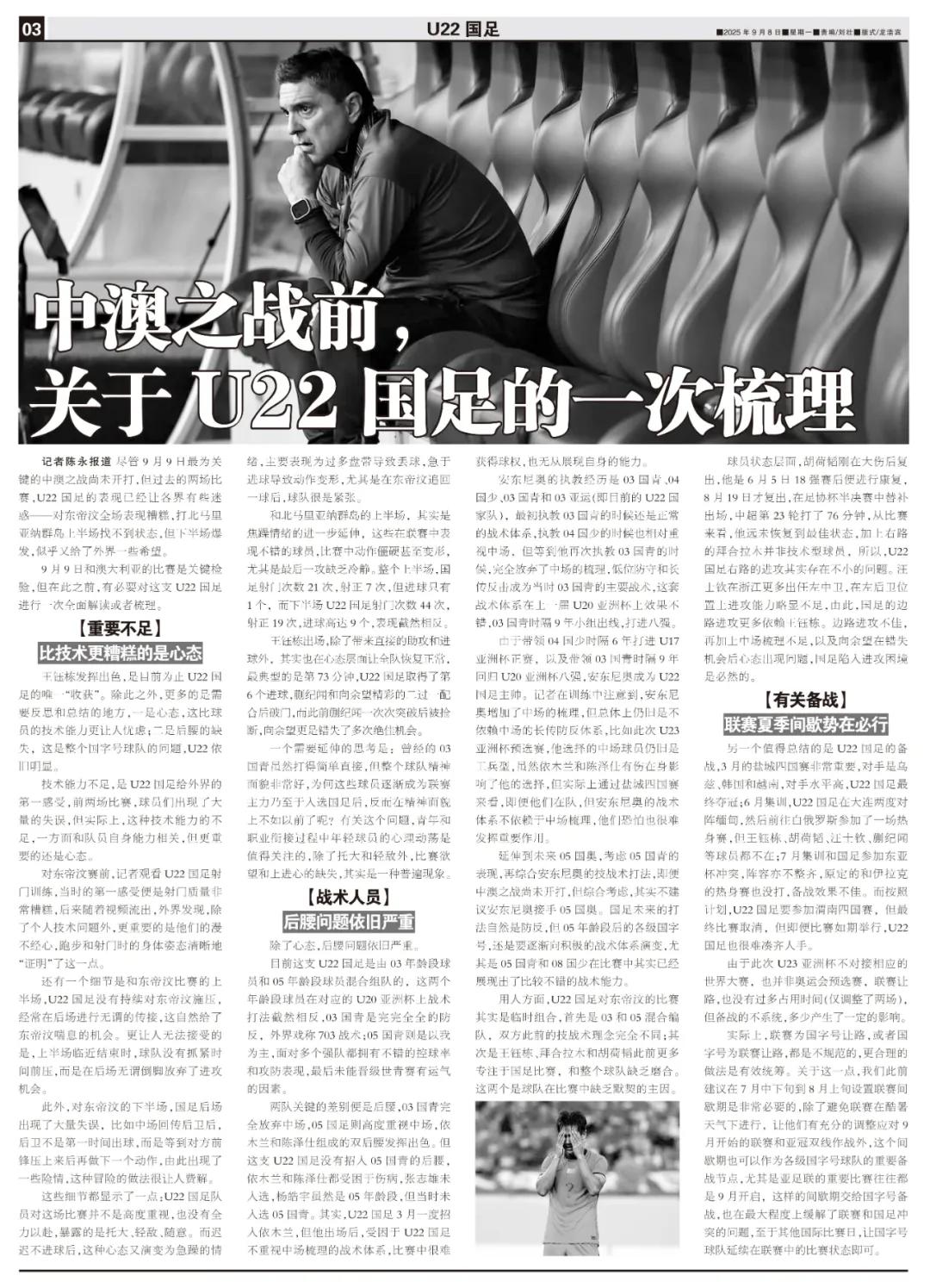




















 Links
Links
 Contact
Contact
 App
App


